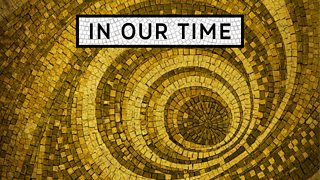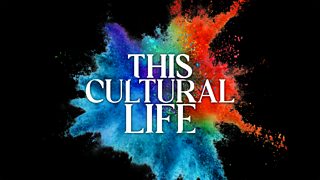Six things we learned when the Archbishop of Canterbury met psychologist Dr Susan Blackmore.
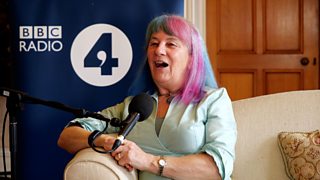
In the latest episode of Radio 4's The Archbishop Interviews, the Archbishop of Canterbury, Justin Welby, speaks to psychologist Dr Susan Blackmore.
An out-of-body experience as a student inspired Dr Blackmore to investigate the paranormal and matters spiritual. Her studies ultimately led her to atheism and Zen meditation.
Though the Archbishop and Dr Blackmore come from very different perspectives, they find some common ground on consciousness.
Both had formative experiences in consciousness aged 19
Susan Blackmore’s out-of-body experience happened when she was smoking cannabis with friends at university. Already tired beforehand, Susan started to hear music and experience a very real feeling of “going down a dark tunnel with a light at the end”.
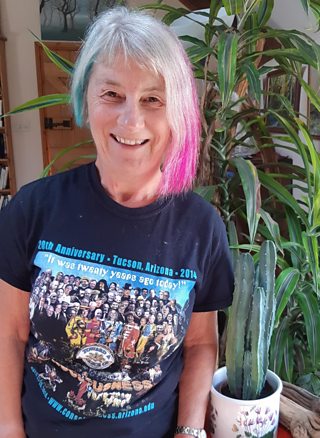
“This had not been heard of in 1970,” Susan says, “the whole idea of near-death experience came much later.”
Initially putting it down to an “astral projection” and, therefore, a reason to believe in everything spiritual – Susan now describes what happened as a “classic experience of oneness” which still drives her curiosity and her meditations.
Meanwhile, at 19, the Archbishop was in his second year at university. One evening, a friend took him to church and then supper, telling him the story of the cross and the resurrection of Jesus. “There was suddenly a sense of presence in the room,” says the Archbishop. “I'm not sure how to explain that. And my friend said: ‘What do you want to do now?’ And I said, ‘whatever this is, it is good and I need to cooperate with it.’”
If God was one of us… then the Archbishop would be agnostic
When Susan was a child her family were regular churchgoers, whereas the Archbishop’s parents were called “submarine Christians” because, as he explains, “we only surfaced once a year at Christmas.”
Their path through faith has clearly taken a different route, and Susan is fascinated by the Archbishop’s calling. She asks the Archbishop what would happen if God was found in human form. “My whole faith would finish,” he replies, adding: “I would come to an agnostic position, and I'd say they might or might not be a God, but the only way we know God is by God revealing God's self to us.”
Free will is also a belief
While Susan tries to understand why the Archbishop needs God, he is equally curious as to why she believes there is no free will. In response, Susan describes a car journey in which she made a last-minute choice between two roads, one a main road with fast traffic, another a windy route with cows and blind spots. Her final decision appears instinctual but is informed as all decisions are, she says, by prior knowledge and previous experience.
Susan’s father – despite suffering from dementia – once asked her: “If there's no free will, why do I want to be good?” “I was stunned,” admits Susan. “A sort of answer is the kind of biological animal that we are. We are a social species with reciprocal altruism. It pays us to be seen to be good by other people.”
Changing your ways is predetermined
To challenge the notion of no free will, the Archbishop presents a case study of a man who sought his advice who was drinking too much, using drugs, and having an affair – all inevitably causing chaos with his home life. “He said, ‘What am I going to do?’ And on that occasion, I said: ‘It's deeply harmful. It's absolutely wrong. And the religious word for this is ‘repent’. You need to change your mind and go the opposite way.” Susan contends that the choice the man will make depends on “his background experiences” in the same way that Justin’s background experiences led him to give the advice he did.
A bishop, and the most unlikely person to do this, once said, ‘I sometimes wonder if we talked about sex less and did it more, whether we wouldn't be a lot happier?’Justin Welby
A bishop once made the case for more sex
When Susan observes that the concept of sin is unhelpful when trying to understand the self and free will, Justin recalls discussing the church’s approach to homosexuality and same-sex marriage with fellow clergy. “A friend of mine, who was a bishop and the most unlikely person to do this, said: ‘I sometimes wonder if we talked about it [sex] less and did it more, whether we wouldn't be a lot happier?’ There was a stunned silence and then everyone roared with laughter!”
‘Who am I?’ is a question you’ll be asking most of your life
“[Who am I?] is a question you can go on and on and on asking in meditation. I can give the neuroscientific answer. I, or what feels like me, is a representation, a model, a story that the brain is building. We know which bits of the brain connect up with the body schema, which is where your body is all the time, what it's doing, how that connects with memories. We can see those things happening. That's one part of the story. But sitting there and feeling, ‘who is this?’ and the way that changes through life, that's extraordinary.”
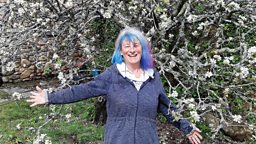
Prayer and meditation are both ways of overcoming anxiety
Decades of meditation and Zen training have made Susan “more able to notice other people and forget myself” and experience the difference between being “in total silence with nobody there or a different feeling of ‘I'm experiencing this quiet place.’”
Susan’s experience of meditation resonates with the Archbishop. He gives the example of attending silent prayer in the Crypt Chapel of Lambeth Palace with clergy from all over the world, including members of the Benedictine tradition of study, prayer and meditation and the Ignatian tradition of self-examination.
“I don't manage to get there very often, but when I do, it's the most important thing I do with others, and it is absolutely quiet; one's on receive mode rather than transmit mode.”
The Archbishop adds that, from time to time, he turns nerves into a time for prayer, describing that feeling as “handing over that anxiety to God.”
What it’s like to meet evil
The attraction of religion, Susan says, is the idea that “in the end, the bad people will be punished, but the good people won't.” The Archbishop counters that it is about “mercy and justice being held perfectly together.”
“I've met people who have been responsible for literally tens of thousands of deaths and horrible, horrible deaths,” says the Archbishop. “There's one I remember particularly. It’s the only time in my life that I can remember meeting someone who I genuinely felt was evil, a warlord. He was there and his troops were there, so, I was very polite, in the first instance. And then I see the people who had suffered from this man's atrocities, and I go back to the Psalms, the Psalms of protest and lament, and say to God, ‘this is all wrong, what do you think you're up to?’”
Catharsis is a universal feeling
Susan and the Archbishop share deeply personal stories in their time together. Susan talks about the death of her husband and the Archbishop about the death of his daughter.
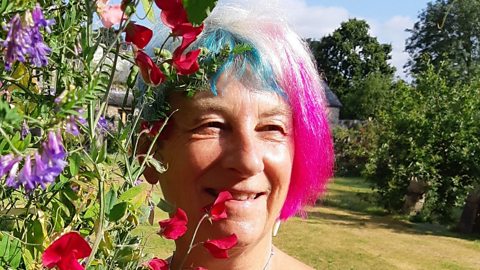
Freewill and goodness
The Archbishop and Dr Blackmore discuss where the impulse towards goodness comes from.
On the 10th anniversary of the death of her first husband, Susan was on a walk and suddenly found herself recalling the lyrics of The Beatles song, The End: "And in the end / The love you take / Is equal to the love you make." “It turned something over in my heart,” says Susan. “I'd been thinking about missing him and other people I'd thought about who were dead. I can't quite describe it, but it didn't go away for a long time. The lyric allowed Susan to feel that she had been a loving person but also to allow herself “to feel the love that's around and be more responsive to it in other people.”
The Archbishop can very much relate to having lingering thoughts of loved ones. “I never get the last moments of our daughter's life and the sense of love for her out of my mind for a moment, and the deep sense of being loved by God and of knowing this was a moment that would never, ever go away. When one of our other children was really very ill as a baby, it was the love of people around us that told me I was loved. And looking back, I would say that God loved us through the love we received from the people around us.”
-
![]()
The Archbishop interviews... Dr Susan Blackmore
This week's guest is the psychologist Dr Susan Blackmore. She’s spent five decades studying, thinking and writing about consciousness. Her captivation with the subject began when she had an out-of-body experience at the age 19. It was to change the course of her life as she set out to prove the existence of the paranormal...

More deep conversations on Radio 4
-
![]()
Desert Island Discs
Eight tracks, a book and a luxury: what would you take to a desert island? Guests share the soundtrack of their lives.
-
![]()
In Our Time
Melvyn Bragg and guests discuss the ideas, people and events that have shaped our world.
-
![]()
The Listening Project
Bringing Britain together, one conversation at a time.
-
![]()
This Cultural Life
In-depth conversations with some of the world's leading artists and creatives.


